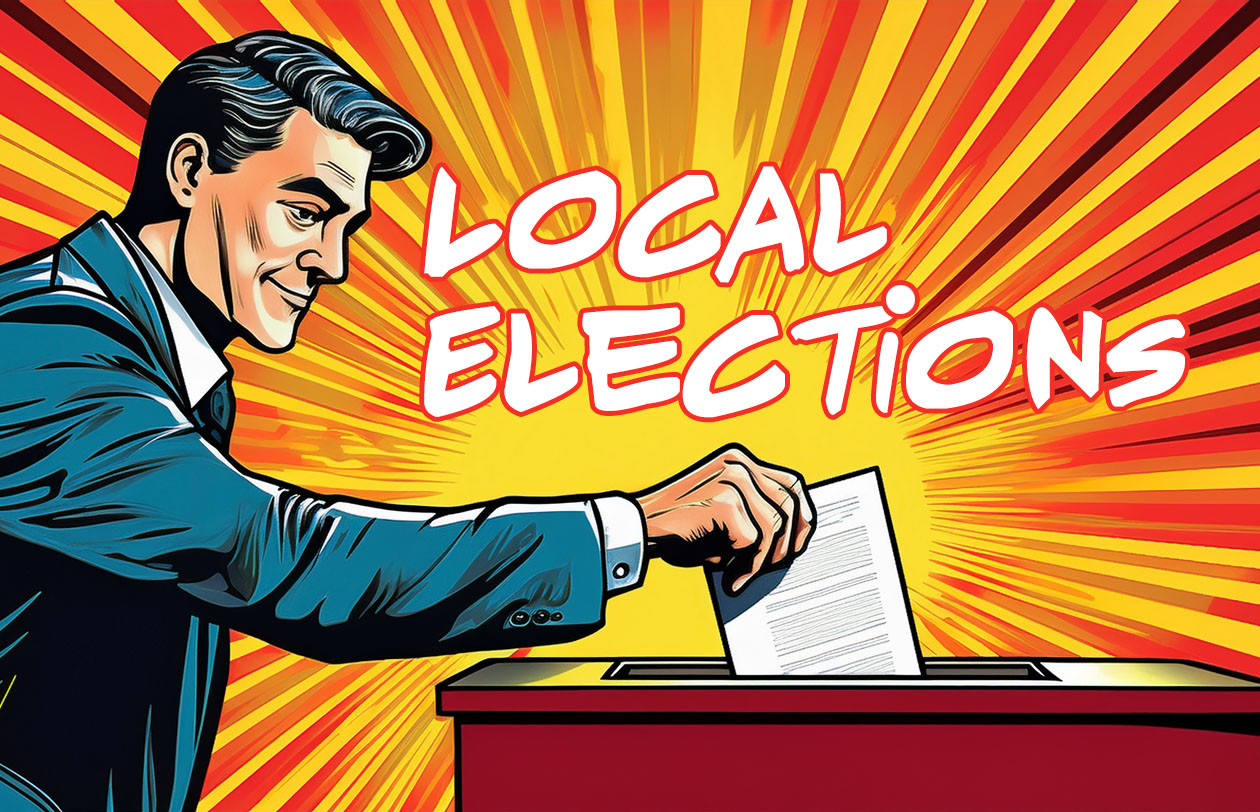What Cornwall Thinks about… the run up to the 2025 local elections
Local election results can be seen here.
Our panel are highly engaged
Whilst national turnout was estimated at around 35% (high for a local election), engagement was exceptionally high amongst those of our panel members responding to this survey: 77% said they definitely or probably would vote, and another 14% said they had already done so (via postal voting).
At time of writing, we do not know how Cornwall voted proportionally at the local elections. However, if our panel is representative of Cornwall as a whole, it would suggest the “first past the post” system significantly benefitted both Reform and the Liberal Democrats and left Labour, the Green Party and Mebyon Kernow under-represented. However, a sample of 70 (average age of 61) is highly unlikely to be representative of Cornwall as a whole (and as shown above, our respondents are unusually engaged in these elections compared to the public as a whole). It is a more likely conclusion that our panel has a higher proportion of Labour, Green and Mebyon Kernow voters than is typical in Cornwall, and fewer Reform and Liberal Democrat voters.
| Base: | 70 respondents happy to tell us how they voted | 87 council seats |
|---|---|---|
| Reform | 20% | 32% |
| Liberal Democrats | 23% | 30% |
| Independent | 14% | 18% |
| Conservative | 10% | 8% |
| Labour | 14% | 5% |
| Green Party | 10% | 3% |
| Mebyon Kernow | 9% | 3% |
Housing is our top priority
Asked what the candidates for Cornwall Council should be focussing on, the top answer was “housing”:
- 42% – Addressing local housing needs / affordable housing / number of second homes
- 39% – Improving health care (inc. dental)
- 35% – Improving social care (inc. care for vulnerable and elderly)
- 28% – Protecting local services from cutbacks
- 26% – Cleaning local rivers and beaches / Tackling sewage
- 24% – Cutting down on wasted spending / Tackling council debt
- 18% – Improving local public transport
- 17% – Road repairs / pot holes
- 14% – Improving transparency and accountability of elected officials
- 12% – Supporting local businesses / addressing number of closures on some high streets
- 11% – Supporting schools and education (inc. adult education)
- 10% – Supporting the police / addressing crime (inc. drink, drugs, theft, vandalism)
Provision of affordable housing is seen as an area where many public and private organisations share responsibility – but primarily sitting with the county council: 83% think responsibility lies fully or partially with the county council, 56% that it lies fully or partially with national (central) government.
Why would you not stand yourself?
Reflecting the high level of engagement in the local elections expressed by our panel, our respondents included one current councillor, two candidates, six former councillors (be that county, town or parish), and thirteen who would consider standing in the future. 61% of those responding knew someone who had stood as a councillor or MP. However, 78% of our respondents had never, and were unlikely to ever, stand as candidates themselves:
- Lack of time / competing commitments
- Lack of confidence / skills / knowledge
- Limitations of age / health / energy
Disillusionment with politics- “No politician is honest… Liars to a man.”
- “Most are in it for status, money…”
- “Should be filled by informed people, not vested interests or idiots…”
- Lack of interest / Choosing to contribute to the community in other ways
- Concerns about the hostility / scrutiny / abuse public figures are subjected to
- Perceived ineffectiveness / powerlessness of local government
If you know a candidate (or knew one in the past) what sort of candidate were they?
61% of our respondents said they knew a candidate, or had known someone who had stood as a councillor or MP in the past. We asked them what sort a councillor or MP they were (or would have been).
Many described the individuals positively: committed, diligent, helpful, proactive, and genuinely trying to serve their communities. However, party politics and personal ambition were also raised by some as limiting the effectiveness of some candidates.
What message do our panel have for the newly elected members of Cornwall’s Council?
Asked what message they would like to pass to the newly elected members of Cornwall’s Council, the various, verbatim responses can best be summarised like this:
“Put local people and communities first — listen honestly, act transparently, and leave party politics behind to deliver accountable, practical solutions to the real issues facing Cornwall.”

